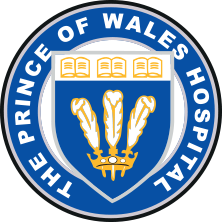Perioperative Unit and Day Surgery
How we can help you
Most patients who are having planned elective surgery come through our Perioperative Unit on the day of their procedure. 'Perioperative' means around the time of surgery.
If you are go home the same day or of if you are staying one night you will also return to the Perioperative Unit before going home. If you are staying longer than one night you will be transferred to one of our surgical wards.
For enquires about your surgical procedure, please speak with your referring specialist or surgeon.
For enquires about your stay in Hospital, please visit our webpage Surgery, Anaesthesia and Perioperative Medicine or contact our Admissions Department on 02 9392 9001.
For enquiries regarding your anaesthetic, please visit our webpage Surgery, Anaesthesia and Perioperative Medicine or contact our Anaesthetic Pre Evaluation Clinic (APEC) on 02 9382 3685 or by email to SESLHD-APECclinic@health.nsw.gov.au.
All of our surgical services are performed at Prince of Wales Hospital, Randwick.
